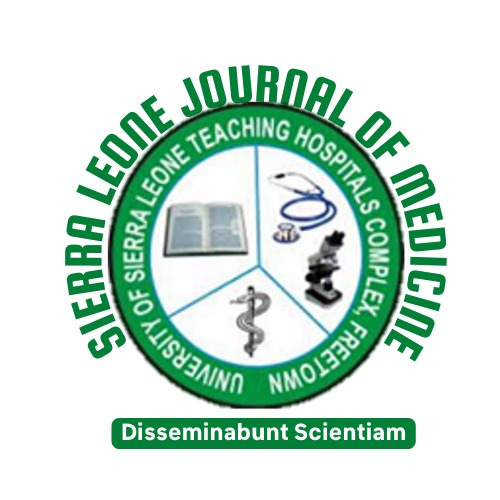FAQ - Frequently Asked Questions SLJM
This webpage contains information about the Sierra Leone Journal of Medicine (SLJM) that addresses many common questions from authors. Our FAQ page consolidates relevant information and links in one location, aiding both authors and readers. We believe this promotes transparency and benefits aspiring authors. If you notice any critical information missing from this page, please email the Editor-in-Chief. We welcome your queries to ensure that essential information is readily accessible
FAQ 10 most important things to know
FAQ 10 most important things to know
Our journal publication website is dedicated to disseminating high-quality research articles across a diverse range of biomedical disciplines, thereby promoting scholarly communication and knowledge exchange.
To submit your research paper, please visit the ‘Submission‘ section on our website. Follow the provided guidelines and submit your manuscript via our online submission system.
We accept a variety of article types, including research articles, reviews, case studies, and more. Please refer to our submission guidelines for detailed information on accepted formats.
Our peer-review process involves a thorough evaluation by experts in the field, ensuring the quality and validity of the articles we publish. While the duration of the review process may vary, it typically takes about four to six weeks.
The SLJM does not require any publication fee at any stage of the editorial process.
Authors retain copyright to their work. However, by submitting to our journal, authors grant us the right to publish and distribute the accepted manuscript. For more details on our copyright policies, please visit our ‘Copyright Policy‘ page.
Access to published articles is available through our website. All articles are open access and freely available to all readers.
Yes, our journal is indexed in Google Scholar and will soon be indexed on other platforms
Authors are expected to adhere to ethical guidelines, including avoiding plagiarism, presenting accurate data, and obtaining necessary permissions. Detailed information is available in our “Author Guidelines” and Journal Policy sections.
For inquiries or assistance, please visit our “Contact Us” page. There, you will find contact information for the editorial board and our support team
Current Publication
- Assessment of Basic Medical Knowledge and Skills of Federal Road Safety Corps Officers on Pre-Hospital Trauma Care of Road Crash Victims in Southwest, Nigeria: A Cross-Sectional Study
Background Prompt and efficient pre-hospital care enhances the survival and recovery of road traffic crash (RTC) victims. Often provided by individuals with basic medical skills, such as Federal Road […]
- Burden and Determinants of Hypertension in Adult Residents of Ekiti State: A Population Based Study
Background Hypertension is the leading risk factor for cardiovascular disease in Nigeria and sub-Saharan Africa, contributing substantially to morbidity and mortality. It is influenced by multiple […]
- Pattern and Outcome of Armed Robbery Related Gunshot Injury in a Teaching Hospital in Southwest, Nigeria
Background Armed robbery attacks are the commonest cause of civilian gunshot injuries (GSI) in published data in Nigeria. This study was done to determine the pattern and outcome of the armed […]
- Evaluating Lassa fever knowledge and preventive practices in a rural community in Gboko, Benue State Nigeria: Stemming the spread of Lassa in rural communities
Background Lassa fever is a highly infectious viral illness transmitted through fluids and secretions infected rodent, Mastomys natalensis. The study aimed to explore the awareness, knowledge, and […]
- An Analysis of Maternal Deaths from a Referral Tertiary Healthcare Facility in Freetown, Sierra Leone
Background Although progress has been made recently in reducing maternal mortality in Sierra Leone, maternal mortality remains an important public health problem in the country that needs further […]


